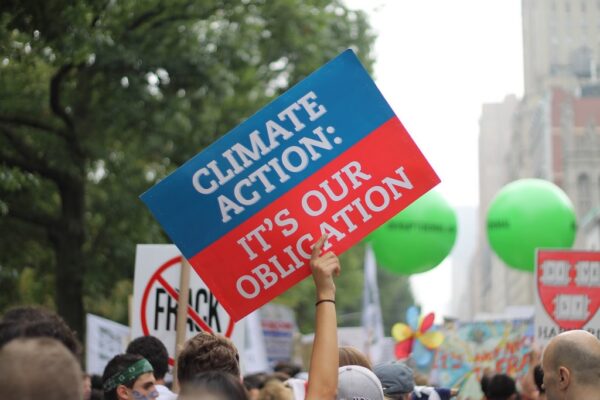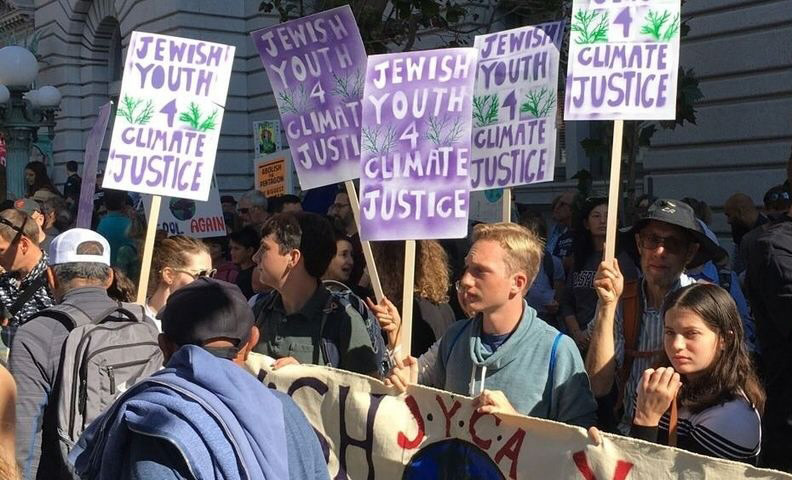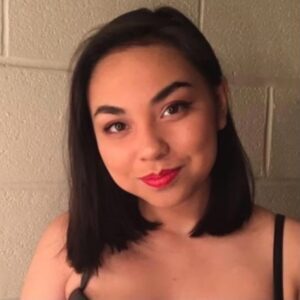Many uses of “from generation to generation” focus on the survival of the Jewish people, without a look at the bigger picture: This summer has brought home the urgency of understanding how people and the planet are interconnected and fighting for our mutual survival. After all, what good is the hope for new generations of Jewish children and grandchildren if they will be left with a world that is inhabitable?
Evidence of climate change has been accessible as early as the late 19th century, and pushes from leading scientists have led to the development and progress of the environmental justice and climate movements. We are going through a massive economic downturn and a global pandemic, complemented by news images of climate disasters that are becoming too familiar a sight. This last year has been the worst yet for the climate crisis.
In the struggle for solutions comes the push for comprehensive and connected federal legislation known as the Green New Deal. With proposals for 100% renewable energy in 10 years, the creation of millions of living-wage union jobs, and investing in BIPOC communities, the Green New Deal provides the framework for a cleaner, safer, and more equitable world.
Young people have been on the forefront of this battle for the Green New Deal, from the Sunrise Movement to high school and college campus organizations, because we know that without the Green New Deal, we have no future. That’s why the Workers Circle College Network (WCCN) is organizing Young Jews for a Green New Deal (YJ4GND) and our petition to Congress. We believe in collective activism — that every one of our voices matters and that we are stronger when our voices are joined. That’s why our petition features space for signers to add their own words about why they support a Green New Deal to the petition itself. Our virtual petition launch featured performances of Yiddish songs following the theme of unity with the natural world by musicians Anthony Russell and Adah Hetko. Another event featured a discussion with labor scholar Professor Daniel Katz on Yiddish history and the contemporary U.S., including a conversation looking at FDR’s New Deal from a 21st-Century leftist perspective. And of course, community building events with our network members. WCCN’s conception and growth during the pandemic has meant our organizing and event history has been largely virtual, allowing us to connect with young climate activists all over the country.

WCCN uses our Jewish social justice history to inform how we fight in today’s struggle for the life of our planet and its people, and takes into consideration how the Jewish community exists today. At first glance, climate change may not seem to be a very “Jewish” issue. It may seem like young Jews aren’t the people who “should” be a prominent voice in this fight. But our history tells a different story. The history of the Jewish people is one that is full of stories of displacement, and our resolve to advocate for our own existence in the diaspora. The threat of climate change is, at its core, an oppressive force that threatens existence for all. Our connection to the fight for climate change goes beyond the value of tikkun olam, “world repair”; our contributions to climate justice exist as part of long-standing Jewish tradition of self-preservation and strength.
“Climate justice is a Jewish issue,” says WCCN/YJ4GND community member, and young climate activist, Noah Strong. “Following the principles of l’dor v’dor, as well as wanting to leave something behind the world that you inherited for your children and grandchildren; the world that you inherited. It’s also been the vocation of Jewish people to not only fight for their own rights, but the rights of others. And because climate change is so interlocked with social and economic justice issues, it just makes sense to care about it from that perspective.”
Strong, a rising sophomore at Florida State University, has plans to continue his climate activism upon making an in-person return to campus, engaging with a number of climate organizations based throughout the U.S. “The movement is much more effective when everyone is working together, across the country.” He is also one of the community members on a WCCN action team with a focus on climate justice: the WCCN “Green Team”. The team, with members based from coast to coast, executes action and advocacy as part of our Young Jews for a Green New Deal campaign, collaboratively writing our petition and coordinating community events centered around climate justice through the lens of Yiddish history and culture.
This campaign is one of the core initiatives of WCCN, since we all know there is no time to waste in acting around climate justice. In 2020, the National Interagency Fire Center reported 58,950 U.S. wildfires, largely centralized on the West Coast, burning 10.1 million acres (15,816 sq. miles). That’s over twice the land area of New Jersey, and the largest area burned since 2015. In February of this year, Mexicans and Texans faced a devastating ice storm, leaving nearly 10 million people without power, and killing at least 176. The Midwest has seen heavy rains and disastrous flooding, as well as the ongoing Flint water crisis. The ever-present element of environmental racism has meant these disasters have disproportionately impacted BIPOC communities.

And this is just part of the picture. From typhoons and volcano eruptions in the Philippines, to flooding in Afghanistan, to hurricanes in Latin America, to bushfires in New South Wales, the climate crisis is felt worldwide, taking hundreds of lives and devastating communities. Many of the most affected regions do not have a voice, nor means to stop or prevent the ongoing devastation. There are only so many economic empires, and the people leading them have proven to not have the people’s best interests in mind. The fate of 7 billion lives rests in the hands of a select few. We are at a critical time in history, feeling the effects of practices that have long been toxic to our global ecosystem.
We have under seven years to fix it.
Just under seven years to achieve zero emissions, to globally divest from fossil fuels, to enact a complete, radical upheaval of our economy and way of life.
As young Jews, we feel a strong connection to climate justice through our ongoing tradition of resilience, and strive to carry it on. Every year, the Jewish community sees our institutions dedicate millions of dollars to attempt security in a future of what they perceive Judaism should look and feel like. We are taught a narrative that places an emphasis on the survival of the Jewish people while largely ignoring the action needed to ensure survival for all. WCCN bridges the gap between our members Jewish and activist identities, and places an emphasis on empowerment for young Jews as well as the communities most affected by the issues of today. We will continue our advocacy for climate justice, with more in-person and virtual targeted action, as well as events on Yiddish culture, radical history, and the intersections between art and activism. Above all, we strive to continue to build Jewish community through common goals of progressive change. We will continue to work towards Jewish continuity in the way we know how — by ensuring a shenere un besere velt far ale — a better and more beautiful world for all.
If you’d like to get in touch with the Workers Circle College Network, send an email to college@circle.org, or connect with them on their Instagram, @workerscirclecollege, and Facebook page. You can also join the Workers Circle College Network at their upcoming climate actions on September 12 and September 24. More information on our social media! Featured photo credit to Gabe Stutman.

